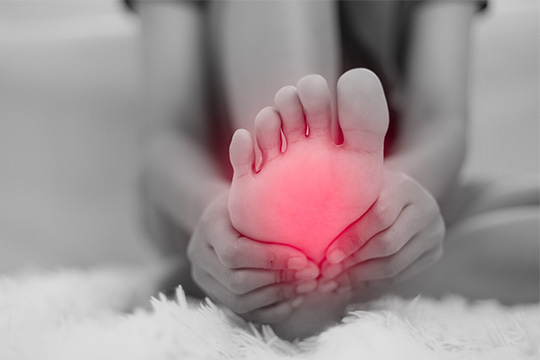Home > Disease and Treatments > Women and Rheumatic Diseases: Unique Challenges and Care
Women and Rheumatic Diseases: Unique Challenges and Care
Women are known for their strength, compassion, and resilience. But when it comes to certain health conditions like rheumatic diseases, they often face unique medical challenges. These autoimmune and inflammatory conditions are more common in women, and they can make diagnosis and treatment more complex. The good news is that with timely care and the right support, women can manage these conditions effectively and lead active lives.
At RoyalCare, we believe awareness is the first step toward better outcomes. In this blog, we explore how rheumatic diseases affect women differently, the obstacles they encounter, and how expert care can make a significant difference.
Understanding Rheumatic Diseases
Rheumatic diseases are a group of over 100 disorders that cause inflammation in joints, muscles, and connective tissues. Many are autoimmune in nature, meaning the immune system mistakenly attacks healthy tissues.
Some common examples include:
- Rheumatoid Arthritis (RA) : A chronic condition that causes joint pain, stiffness, and swelling
- Systemic Lupus Erythematosus (SLE) : Affects multiple organs including skin, joints, kidneys, and heart
Why Are Women More Affected?
Research shows that nearly 80% of autoimmune disease cases are found in women. This is due to several biological factors:
1.Hormonal Influence
Estrogen plays a role in regulating the immune system. It can enhance immune response but may also trigger autoimmune reactions in some individuals.
2.Genetic Factors
Some genes linked to autoimmune diseases are located on the X chromosome. Since women have two X chromosomes, their risk is higher.
3.Immune System Differences
Women naturally have a more active immune system. While this helps fight infections, it can also lead to increased risk of autoimmunity.
Unique Challenges Faced by Women
- Delayed Diagnosis : Symptoms like joint pain and fatigue are often dismissed or misattributed to stress. This can delay appropriate diagnosis and treatment.
- Pregnancy and Fertility : Certain medications used in rheumatic care may impact fertility or are unsafe during pregnancy. Women require medical guidance when planning to conceive.
- Menstrual and Menopausal Symptoms : Hormonal changes during menstrual cycles or menopause may worsen rheumatic symptoms and affect how the body responds to treatment.
- Mental Health Strain : Living with chronic pain can lead to stress, anxiety, or depression. Women often manage both family and work responsibilities while coping with chronic illness.
RoyalCare’s Approach to Women’s Rheumatic Health
At RoyalCare, our team focuses on early detection, personalized care, and emotional support. We provide:
- Accurate Diagnosis: Using advanced diagnostics to identify rheumatic conditions in their early stages
- Individualized Treatment Plans: Tailored medical care including medications, physiotherapy, nutrition counseling, and psychological support
- Collaborative Care: Coordination between rheumatologists, gynecologists, and mental health professionals
- Support Groups: A platform for women to connect, share, and learn from others facing similar conditions
How Women Can Take Charge
- Engage in low-impact physical activity like walking, yoga, or swimming
- Follow a balanced diet that includes omega-3 fats, vegetables, and whole grains
- Keep a symptom journal to track patterns and discuss with your doctor
- Practice relaxation techniques like deep breathing or hobbies to manage stress
- Schedule regular check-ups to monitor disease activity and prevent flare-ups
Rheumatic diseases may be more common in women, but with the right care and lifestyle strategies, women can live healthy and fulfilling lives. At RoyalCare, we are here to support that journey with compassionate care and expert guidance.
If you or someone you know is experiencing persistent joint pain, stiffness, or fatigue, contact RoyalCare for an evaluation and care plan.
Appointments must be made 24 hours in advance.
Book an AppointmentRECENT BLOGS

Cardiovascular disease remains the leading cause of mortality worldwide, accounting for ne...
Read More
Headaches are among the most common ailments people experience, but not all headaches are ...
Read More
Living with diabetes means taking extra care of your health and one of the most important ...
Read More
